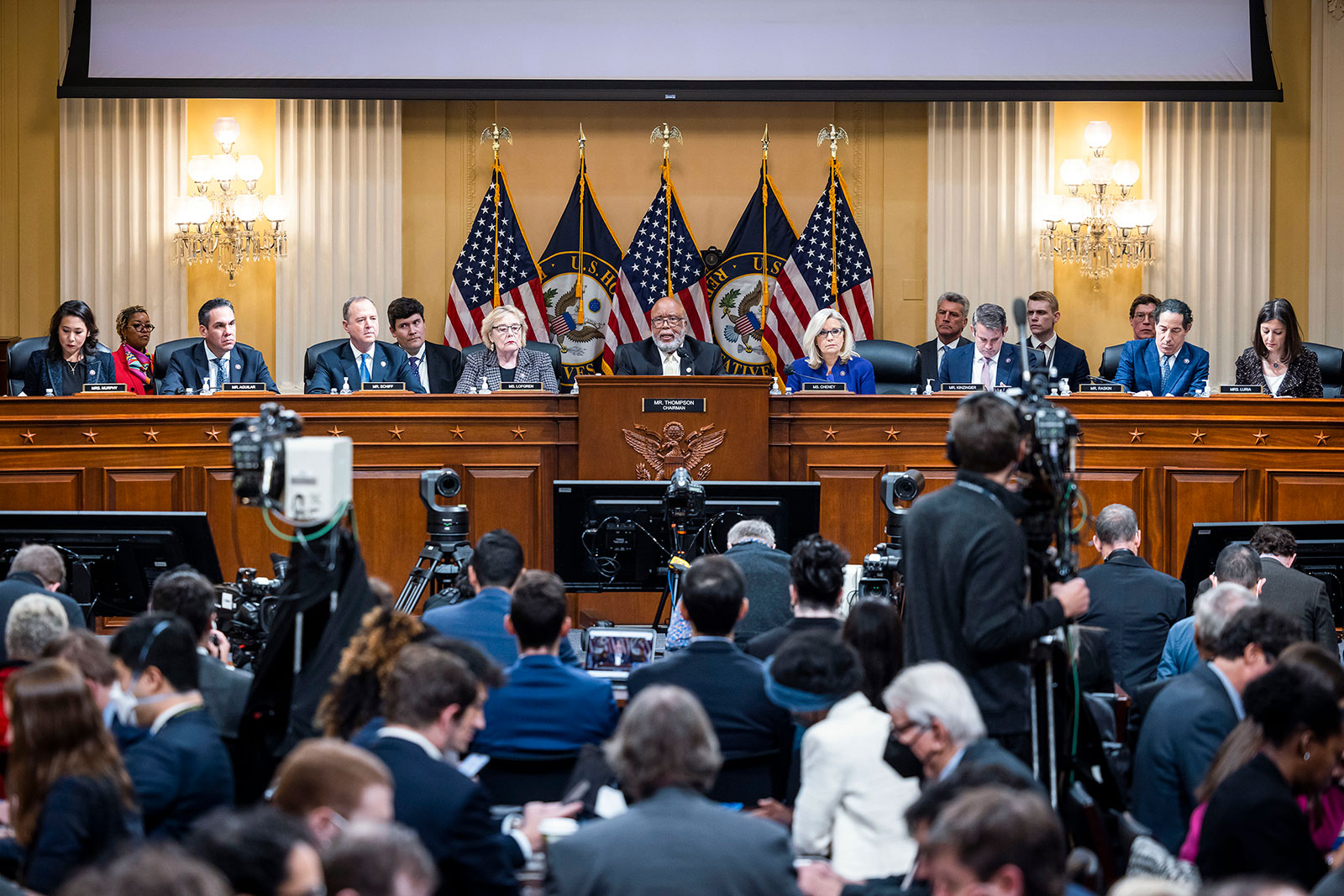
The House select committee investigating the Jan. 6, 2021, attack on the US Capitol has concluded that former President Donald Trump was ultimately responsible for the insurrection, laying out for the public and the Justice Department a trove of evidence for why he should be prosecuted for multiple crimes.
The summary describes in extensive detail how Trump tried to overpower, pressure and cajole anyone who wasnt willing to help him overturn his election defeat while knowing that many of his schemes were unlawful. His relentless arm-twisting included election administrators in key states, senior Justice Department leaders, state lawmakers, and others. The report even suggests possible witness tampering with the committees investigation.
The committee repeatedly uses forceful language to describe Trumps intent: that he purposely disseminated false allegations of fraud in order to aid his efforts to overturn the 2020 election and to successfully solicit about $250 million in political contributions. These false claims provoked his supporters to violence on January 6th.
The full report, based on 1,000-plus interviews, documents collected including emails, texts, phone records and a year and a half of investigation by the nine-member bipartisan committee, will be released Wednesday, along with along with transcripts and other materials collected in the investigation.
Here are some key things from the report summary:
Committee referring Trump and others to DOJ: The House committee lays out a number of criminal statutes it believes were violated in the plots to stave off Trumps defeat and says theres evidence for criminal referrals to the Justice Department for Trump, Trump attorney John Eastman and others. The report summary says theres evidence to pursue Trump on multiple crimes, including obstruction of an official proceeding, conspiracy to defraud the United States, conspiracy to make false statements, assisting or aiding an insurrection, conspiring to injure or impede an officer and seditious conspiracy.
Trump's false victory was "premeditated": The committee outlines 17 findings from its investigation that underpin its reasoning for criminal referrals, including that Trump knew the fraud allegations he was pushing were false and continued to amplify them anyway.
Trumps belief that the election is stolen is no excuse, lawmakers say: Sources familiar with Trumps legal strategy in the Justice Department probe have told CNN that his attorneys believe prosecutors face an uphill battle in proving he did not believe the election was stolen despite being told as much by senior members of his own administration.
In making its case for a Justice Department prosecution of Trump, the House committee took aim at that possible defense.
Several members of Congress being referred to House Ethics Committee: The select committee is referring several Republican lawmakers who refused to cooperate with the investigation to the House Ethics Committee. House Minority Leader Kevin McCarthy, as well as Reps. Jim Jordan of Ohio, Scott Perry of Pennsylvania and Andy Biggs of Arizona, could all face possible sanctions for their refusal to comply with committee subpoenas.
Trump and others may try this again, committee warns: The summarys section outlining the referrals makes a case for why the Justice Departments prosecutions should extend beyond the rioters who physically breached the Capitol.
The committee says that Trump believed then, and continues to believe now, that he is above the law, not bound by our Constitution and its explicit checks on Presidential authority.











